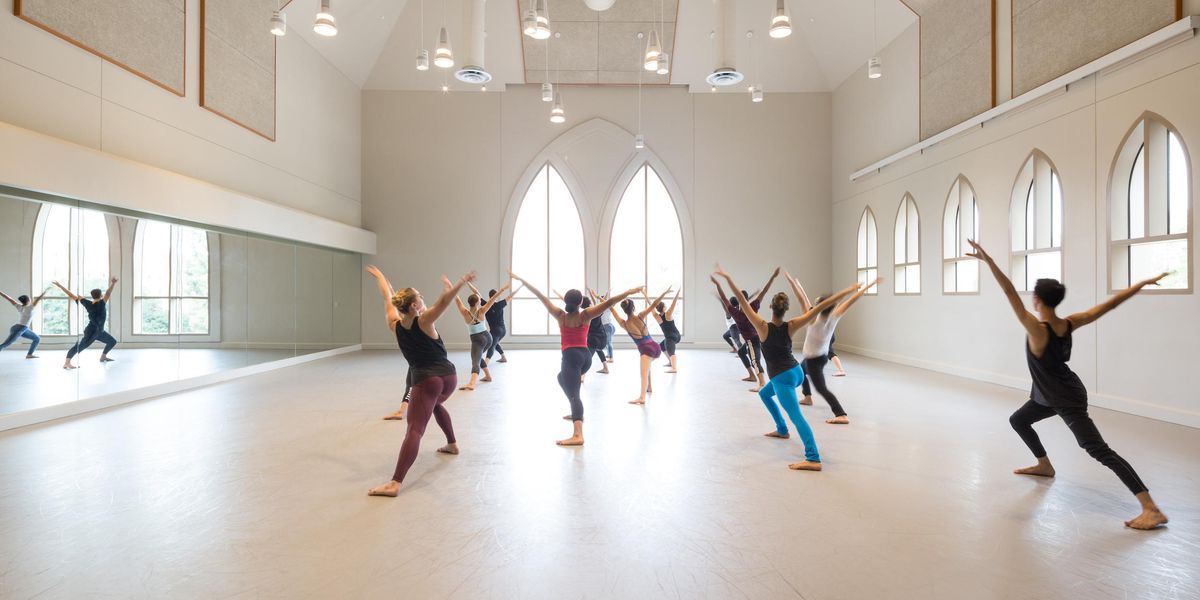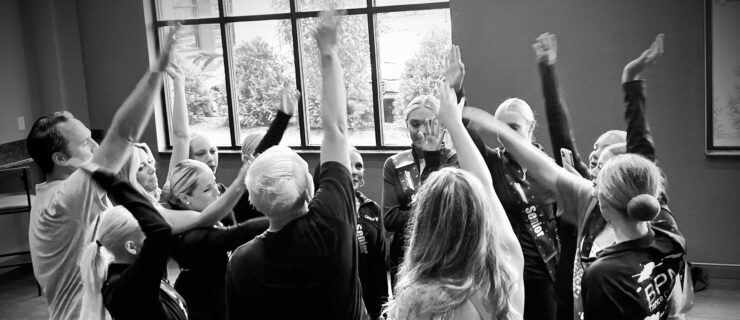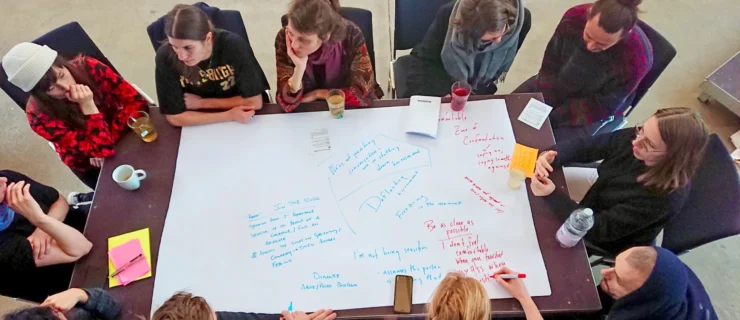Beate Sirota Gordon (1923-2012), A Tribute by Eiko
In 1974 Beate’s cousin, who saw us perform in Tunisia that year, urged Beate to present our work in New York City. After several letters, Beate invited us to perform White Dance at the Japan Society where she was the director of performing arts. Beate later told us that ours and one other were the only performances she ever presented without seeing them beforehand. On May 6, 1976 we made our New York debut. She was shocked when, near the end of the performance, Koma threw unwashed potatoes all over the stage that was just renovated. Despite that, she programmed us again at the Japan Society and at the Asia Society, where she was the director of performing arts from 1970 till 1991. Over the years Beate became our dearest (and most candid) friend.
Beate was an intrepid curator and presenter of Asian performing arts. She travelled alone to many Asian countries, visiting villages deep in the jungles and mountains. The groups she found and brought to the United States often included elders who had never left their villages. Long before the internet, such places as Siberia, Mongolia, Bhutan, India, and Indonesia were much further away; people lived very different lives from those of Americans. But Beate insisted these artists perform their rituals with as little adjustment to the American audience as possible.
To facilitate better understanding and to invite audience members for an “immersion” experience, Beate worked hard. She wrote detailed program notes and invited audiences to view how performers applied make-up and prepared themselves before the curtain. She served regional finger foods in intermissions so people could feel closer to the bodies and cultures of the visiting artists.
Attending Beate’s concerts, Koma and I learned so much about performing arts and about Asia. We felt connected to the rituals, bodies, and faces of these artists. We had grown up in Japan as Japanese, but in New York we felt we were becoming, or rather uncovering ourselves, as Asians. Seeing these dancers and musicians, I believe, expanded American and our perception of what dance and performing arts can be.
Eiko & Koma in
White Dance, produced by Beate Gordon, photo by Toshihiro Suzuki
Beate was also supportive of the work of contemporary artists. Her mantra was that art be “genuine” and “authentic.” She opened many doors for many artists, and even paid dental bills for those who needed help.
Born in Vienna to Jewish parents, Beate grew up in pre-war Japan as her pianist father taught there for years. She was fluent in six languages. We used to joke about her being a Jewish, Japanese, and international mother to her many artist friends who loved her and learned from her deeply. We are among these Asian artists who were encouraged by her guidance and passionate belief in the performing arts.
In 2011, Beate received an honorary degree at Mills College, her alma mater. She concluded her passionate and humorous Commencement speech by quoting W.E. Dubois, “To have satisfying work, and work that the world needs is as near to heaven as one can get.” Beate brought the world art, artists, cultural exchange, and perhaps more equality among human beings. As an ardently non-religious person, she lived her life not toward heaven but as continuation of aspiring to be “near to heaven.”
On December 30, 2012, Beate passed away from pancreatic cancer. She chose to spend her last month quietly with her family. Just a week before her death Beate gave a long interview to Asahi, a major Japanese newspaper. The focus was the Japanese Constitution that Beate had helped to draft and negotiate with the Japanese Government. Soon after World War II she worked in the General Headquarters of the Allied Occupation and was assigned to this remarkable job. Already having become quite weak, Beate willfully put her effort in this interview. She passionately stated that Japanese people should protect the Japanese constitution, in particular, the women’s rights, civil rights, and peace clauses. These being her last public words, she again was helping those now fighting against the newly elected conservative government that aims to change the Japanese Constitution. To her end Beate continued to work hard and inspire many. It seems to me that even her death was another part of her work.
Beate, you were a big tree. Your roots crossed national borders. Your branches reached many cultures. You gave us so many fruits. Along with many friends, Koma and I miss you. 

Thank you.
 —Eiko (of Eiko & Koma)
All photos Courtesy Eiko & Koma




